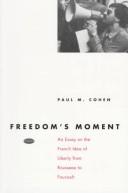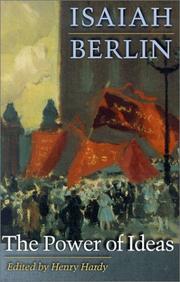| Listing 1 - 5 of 5 |
Sort by
|
Book
ISBN: 2377472982 237747232X Year: 2021 Publisher: Grenoble UGA Éditions
Abstract | Keywords | Export | Availability | Bookmark
 Loading...
Loading...Choose an application
- Reference Manager
- EndNote
- RefWorks (Direct export to RefWorks)
Considéré d’habitude comme le « père » de l’anarchisme français, Pierre-Joseph Proudhon entretient un rapport ambivalent avec la création littéraire. Cet essai retrace tout d’abord la relation de Proudhon à la littérature, telle qu’elle apparaît à travers ses ouvrages. Il analyse ensuite les discours tenus dans ses quatre journaux sur les triomphes du roman-feuilleton, visant la conception d’un feuilleton révolutionnaire capable de diffuser auprès du lectorat populaire, par le biais de la fiction, les idées et les théories qui aideront à son affranchissement. Une présentation des romans-feuilletons parus dans les diverses incarnations du journal Le Peuple est suivie par une étude plus approfondie de l’un d’entre eux, le roman Le Mont Saint-Michel, qui narre les aventures d’un groupe de républicains lors du célèbre épisode de la barricade du cloître Saint-Merry, clou tragique de l’insurrection avortée de 1832. Convoquant de nombreux auteurs connus (Michelet, Stendhal, Victor Hugo et Alexandre Dumas père) et oubliés, cette analyse veut offrir une réflexion sur la nature du roman historique et de l’écriture historiographique pendant une période clef pour leur développement.
History --- Literature --- Literary Reviews --- Political Science --- anarchisme --- socialisme --- monarchie de Juillet --- Stendhal --- révolution --- roman historique --- Jules Michelet --- roman populaire --- Victor Hugo --- Alexandre Dumas --- roman-feuilleton --- Proudhon --- idéologisme
Book
ISBN: 152613750X Year: 2003 Publisher: Manchester, England ; New York : Manchester University Press,
Abstract | Keywords | Export | Availability | Bookmark
 Loading...
Loading...Choose an application
- Reference Manager
- EndNote
- RefWorks (Direct export to RefWorks)
This electronic version has been made available under a Creative Commons (BY-NC-ND) open access license. This is the first ever full book on the subject of male witches addressing incidents of witch-hunting in both Britain and Europe.Uses feminist categories of gender analysis to critique the feminist agenda that mars many studies. Advances a more bal. Critiques historians' assumptions about witch-hunting, challenging the marginalisation of male witches by feminist and other historians. Shows that large numbers of men were accused of witchcraft in their own right, in some regions, more men were accused than women. It uses feminist categories of gender analysis to challenge recent arguments and current orthodoxies providing a more balanced and complex view of witch-hunting and ideas about witches in their gendered forms than has hitherto been available.
Witchcraft --- Warlocks --- History. --- Occultists --- Witches --- Wizards --- European witch-hunting. --- Jules Michelet. --- Kantian internalist categories. --- Stuart Clark. --- William Monter. --- agency theory. --- agent-centred morality. --- demonological illustrations. --- early modern Europe. --- feminised witchcraft. --- male witches. --- selfhood. --- witchcraft studies. --- witches' agency.

ISBN: 0226112918 1281223239 9786611223236 9780226112916 9780226112862 0226112861 0226112853 0226112861 9780226112855 Year: 1997 Publisher: Chicago, Ill. University of Chicago Press
Abstract | Keywords | Export | Availability | Bookmark
 Loading...
Loading...Choose an application
- Reference Manager
- EndNote
- RefWorks (Direct export to RefWorks)
What kind of freedom, and what kind of individual, has the French Revolutionary tradition sought to propagate? Paul Cohen finds a distinctly French articulation of freedom in the texts and lives of eight renowned cultural critics who lived between the eighteenth century and the present day. Arranged not according to the lives and times of its protagonists but to the narrative themes and structures they held in common, Cohen's study discerns a single master narrative of liberty in modern France. He captures these radicals, whose tradition bids them to resist the authority of power structures and public opinion. They denounce bourgeois and utilitarian values, the power of Church and State, and the corrupting influence of everyday politics, and they dream of a revolutionary rupture, a fleeting instant of sometimes violent but always meaningful transgression. An eloquent and insightful work on French political culture, Freedom's Moment also helps explain how France, even as it has oscillated between political stagnation and crisis, has held onto its faith that liberty, equality, and fraternity remain within its grasp. Examines the ideas of Rousseau, Robespierre, Stendahl, Michelet, Bergson, Peguy, Sartre, and Foucault.
Liberty --- Philosophy, French. --- French philosophy --- History. --- Philosophy, French --- History --- freedom, france, french, european, europe, liberty, free, cultural studies, culture, narrative themes, radicals, authority, power structures, public opinion, church and state, religion, government, revolutionary, politics, political, philosophy, equality, fraternity, jean-jacques rousseau, michel foucault, maximilien robespierre, stendhal, marie-henri beyle, jules michelet, henri-louis bergson, charles pierre peguy, jean-paul sartre.
Book
ISBN: 9781400846474 1400846471 9780691157528 0691157529 1299405819 9780691171227 069117122X Year: 2013 Publisher: Princeton, NJ
Abstract | Keywords | Export | Availability | Bookmark
 Loading...
Loading...Choose an application
- Reference Manager
- EndNote
- RefWorks (Direct export to RefWorks)
From national security and social security to homeland and cyber-security, "security" has become one of the most overused words in culture and politics today. Yet it also remains one of the most undefined. What exactly are we talking about when we talk about security? In this original and timely book, John Hamilton examines the discursive versatility and semantic vagueness of security both in current and historical usage. Adopting a philological approach, he explores the fundamental ambiguity of this word, which denotes the removal of "concern" or "care" and therefore implies a condition that is either carefree or careless. Spanning texts from ancient Greek poetry to Roman Stoicism, from Augustine and Luther to Machiavelli and Hobbes, from Kant and Nietzsche to Heidegger and Carl Schmitt, Hamilton analyzes formulations of security that involve both safety and negligence, confidence and complacency, certitude and ignorance. Does security instill more fear than it assuages? Is a security purchased with freedom or human rights morally viable? How do security projects inform our expectations, desires, and anxieties? And how does the will to security relate to human finitude? Although the book makes clear that security has always been a major preoccupation of humanity, it also suggests that contemporary panics about security and the related desire to achieve perfect safety carry their own very significant risks.
Security, International. --- Caring. --- Caring --- Collective security --- International security --- International relations --- Disarmament --- International organization --- Peace --- Conduct of life --- Empathy --- Helping behavior --- Religious aspects --- Christianity. --- Carl Schmitt. --- Cicero. --- Claude Favre de Vaugelas. --- Cura. --- Der Bau. --- Franz Kafka. --- French lexicon. --- Friedrich Nietzsche. --- Genesis. --- Gottfried Wilhelm Leibniz. --- Greco-Roman culture. --- Heine. --- Heinrich von Kleist. --- Hyginus. --- Johann Gottlieb Fichte. --- Jules Michelet. --- Kant. --- Martin Heidegger. --- Roman literature. --- Stoic. --- Thomas Hobbes. --- ancient Rome. --- animals. --- bachelorhood. --- care. --- cura. --- cyber-security. --- decisionism. --- ecumenism. --- exception. --- fables. --- fear. --- freedom. --- historians. --- historicity. --- homeland. --- hope. --- human beings. --- human rights. --- humanity. --- insecurity. --- land. --- language. --- metaphors. --- moral philosophy. --- national security. --- negligence. --- philology. --- philosophers. --- philosophy. --- political philosophy. --- rational judgment. --- safety. --- sea. --- secularization. --- securitas. --- security. --- self. --- selfhood. --- semantics. --- seventeenth-century Europe. --- social security. --- sovereignty. --- state power. --- state safety. --- uncertainty.

ISBN: 0691092761 069105018X 1400848849 069115760X 1299987524 Year: 2002 Publisher: Princeton Princeton University Press
Abstract | Keywords | Export | Availability | Bookmark
 Loading...
Loading...Choose an application
- Reference Manager
- EndNote
- RefWorks (Direct export to RefWorks)
The essays collected in this new volume reveal Isaiah Berlin at his most lucid and accessible. He was constitutionally incapable of writing with the opacity of the specialist, but these shorter, more introductory pieces provide the perfect starting-point for the reader new to his work. Those who are already familiar with his writing will also be grateful for this further addition to his collected essays. The connecting theme of these essays, as in the case of earlier volumes, is the crucial social and political role--past, present and future--of ideas, and of their progenitors. A rich variety of subject-matters is represented--from philosophy to education, from Russia to Israel, from Marxism to romanticism--so that the truth of Heine's warning is exemplified on a broad front. It is a warning that Berlin often referred to, and provides an answer to those who ask, as from time to time they do, why intellectual history matters. Among the contributions are "My Intellectual Path," Berlin's last essay, a retrospective autobiographical survey of his main preoccupations; and "Jewish Slavery and Emancipation," the classic statement of his Zionist views, long unavailable in print. His other subjects include the Enlightenment, Giambattista Vico, Vissarion Belinsky, Alexander Herzen, G.V. Plekhanov, the Russian intelligentsia, the idea of liberty, political realism, nationalism, and historicism. The book exhibits the full range of his enormously wide expertise and demonstrates the striking and enormously engaging individuality, as well as the power, of his own ideas. "Over a hundred years ago, the German poet Heine warned the French not to underestimate the power of ideas: philosophical concepts nurtured in the stillness of a professor's study could destroy a civilization."--Isaiah Berlin, Two Concepts of Liberty, 1958. This new edition adds a number of previously uncollected pieces, including Berlin's earliest statement of the pluralism of values for which he is famous.
Political philosophy. Social philosophy --- Philosophy. --- Philosophy, Modern. --- Modern philosophy --- Mental philosophy --- Humanities --- Age of Enlightenment. --- Alexander Herzen. --- Analogy. --- Autocracy. --- Awareness. --- Bolsheviks. --- Bourgeoisie. --- Calculation. --- Capitalism. --- Career. --- Cataclysm (Dragonlance). --- Chaim Weizmann. --- Chauvinism. --- Civilisation (TV series). --- Classicism. --- Communism. --- Consciousness. --- Criticism. --- Despotism. --- Disenchantment. --- Eloquence. --- Empirical evidence. --- Empiricism. --- Existentialism. --- Fanaticism. --- For Marx. --- Form of life (philosophy). --- Friedrich Meinecke. --- Good and evil. --- Hatred. --- Historism. --- Humiliation. --- Hypothesis. --- Ideology. --- Individualism. --- Institution. --- Intellectual history. --- Intelligentsia. --- Irony. --- Isaiah Berlin. --- Italians. --- Jerusalem Prize. --- Jews. --- John Stuart Mill. --- Jules Michelet. --- Karl Marx. --- Lecture. --- Literature. --- Marxism. --- Modernity. --- Morality. --- Nationality. --- Natural science. --- Obscurantism. --- Obstacle. --- Of Education. --- Oligarchy. --- Oxford University Press. --- Paternalism. --- Pessimism. --- Phenomenon. --- Philosopher. --- Philosophy of history. --- Political philosophy. --- Politics. --- Populism. --- Positivism. --- Prejudice. --- Publication. --- Rationalism. --- Rationality. --- Reality. --- Reason. --- Relativism. --- Result. --- Rhetoric. --- Romanticism. --- Ruler. --- Russian literature. --- School of thought. --- Science. --- Scientific method. --- Scientist. --- Sensibility. --- Sincerity. --- Skepticism. --- Slavery. --- Sociology. --- Symptom. --- The Philosopher. --- Theory. --- Thought. --- Three Critics of the Enlightenment. --- Treatise. --- War. --- Weizmann. --- Western culture. --- Writing. --- Zionism.
| Listing 1 - 5 of 5 |
Sort by
|

 Search
Search Feedback
Feedback About UniCat
About UniCat  Help
Help News
News